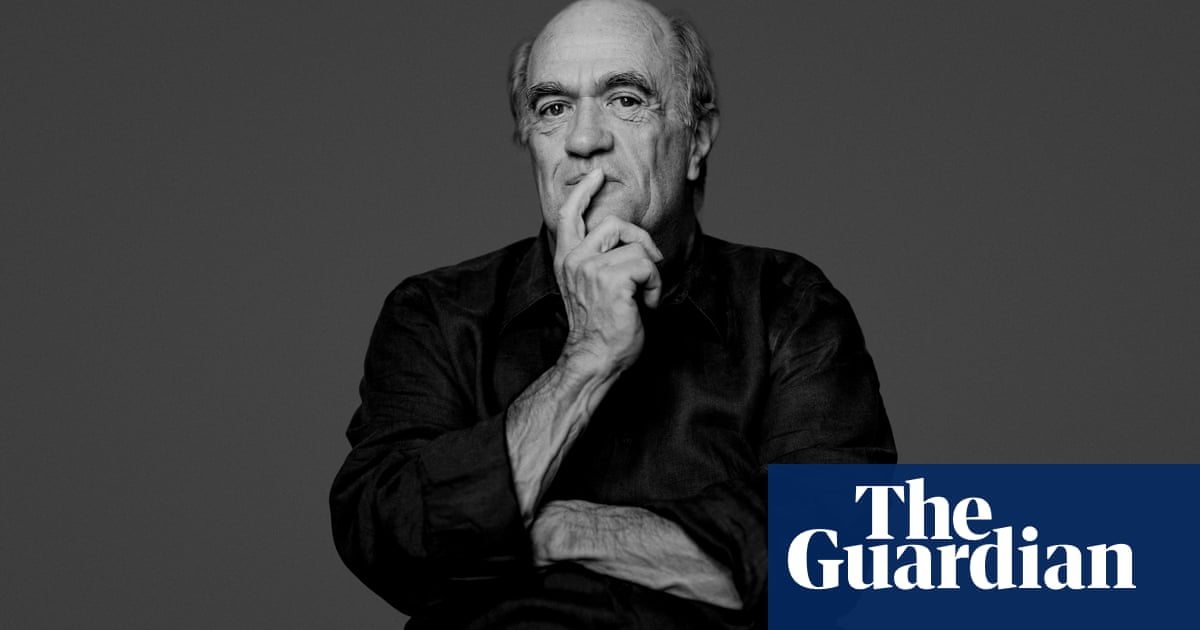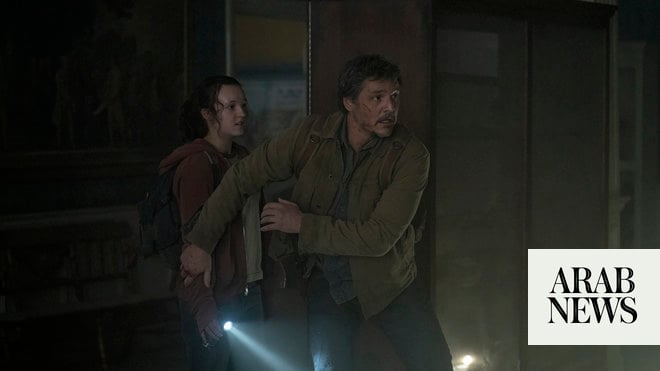
Early next year, shooting starts for a sequel to the 1984 cult rock-mockumentary This Is Spinal Tap. It stars the actors who played the perma-delusional UK rockers back then: Michael McKean as hair-tossing frontman David St Hubbins; Christopher Guest as guitarist, Nigel “one louder” Tufnel; Harry Shearer as bassist Derek Smalls (“Hello, Cleveland!”). No drummers of course: they all perished, exploding on drum stools, dying in “freak gardening accidents”, and so on.
Spinal Tap II has the same director, Rob Reiner, who also played interviewer Marty DiBergi in the original. Reiner has said the plot springs from the death of Spinal Tap’s harassed manager, Ian Faith, played by Tony Hendra, who himself died in 2021. Faith’s fictional widow will inherit a contract that says Spinal Tap owes one more concert. Cameo appearances will include Paul McCartney, Elton John and Garth Brooks.
You would have thought Tap-fan-joy would be undiluted: the band is getting back together, the boys are back in town. So why, for some, are anxieties stoked all the way up to 11?
Are some cult masterpieces just too perfect to revisit? Nearly 40 years on, there appears to be apprehension in some quarters that the sequel couldn’t possibly live up to the legend of Spinal Tap, and may even tarnish it.
You don’t need to come from a music journalism background like mine to appreciate the lethal wit and stiletto-accuracy of Spinal Tap. While there have been others (not least featuring the Rutles and Bad News), Spinal Tap is the undisputed rock-spoof daddy. Mainly inspired by Martin Scorsese’s 1978 rockumentary The Band: The Last Waltz, the film was given a structure, then wholly improvised. Perhaps that’s why, even today, it feels so fresh.
It’s all there – a leather/Spandex/double-denim goldmine of rock ignominy. There’s Tufnel, a mullet in human form, who sets his amp to 11 and is confused when the cover art for Smell the Glove is deemed sexist (“What’s wrong with being sexy?”). St Hubbins, the proto-rehabber (“I’m sure I’d feel much worse if I weren’t under such heavy sedation”). Smalls, who feels he fits between the “fire and ice” of his bandmates (“like lukewarm water”).
Other vivid characters include: Tap’s “Yoko”, St Hubbins’s girlfriend, Jeanine; music exec Bobbi Flekman; grovelling record company promo man Artie Fufkin. The songs: Lick My Love Pump; Sex Farm; Big Bottom. The lyrics (“I love to sink her with my pink torpedo”; “Getting out my pitchfork, poking your hay”).
Along with this, there’s the desperation, the chaos. The tiny, wannabe-prog Stonehenge stage set, wrongly ordered in inches. The backstage scramble to locate the stage. The misguided rock musical side-project about Jack the Ripper (“He’s a naughty one … saucy Jack!”). The realisation that they rank second on the bill to a puppet show. The agonising downward slide (“Their appeal is becoming more selective”). The cruel waning of relevance and popularity.
Over the years, Spinal Tap has become the ultimate tour bus staple, the Citizen Kane of rockumentary
Push past the jokes, cliches, hubris and spiralling silliness, and it’s this – a terrible yawning black hole of pathos – driving Spinal Tap.
It’s part of Tap-lore that, just as the film didn’t initially take off (it epitomises the sleeper hit), it confused some viewers who didn’t realise it was a spoof. Rumours have long swirled about which rockers initially didn’t find it amusing (Steven Tyler; Gene Simmons). Artists from Sting to U2 say they wept at the authenticity. Over the years, Spinal Tap has become the ultimate tour bus staple, a sacred rock artefact, the Citizen Kane of rockumentary.
Right now, some (especially younger) readers may be witheringly thinking: “Some of this doesn’t sound that funny.” However, for the faithful, Spinal Tap changed music culture: gifting the metal/rock annexe some self-awareness but also stretching far beyond. Not for nothing has Spinal Tap transcended film-comedy, to become a descriptor, a metaphor and (for musicians) a warning.
On the Internet Movie Database, Spinal Tap is the only film to be rated out of 11. It turns otherwise mild-mannered folk into gibbering quote-machines. Despite all the intentionally dubious moments and deliberately whiffy lyrics (“You’re too young, and I’m too well hung”), it’s also proved cancellation-proof. So why would there be reservations about a sequel? Why do some doomily expect a rock-centric Spice World, with added hair-metal guitar solos?
There could be a feeling of “don’t mess with a classic” or, put more bluntly, “step away from the nice thing you’re going to spoil”. After all, audiences have been burned before by the overhyped likes of Blues Brothers 2000 (a film that didn’t so much celebrate the 1980 musical comedy classic starring John Belushi and Dan Aykroyd, as bury it in two cheap suits).
Otherwise, there are myriad reasons. While Spinal Tap popularised the mockumentary, the genre isn’t fresh any more. Rockumentaries of recent years (for example, Bros: After the Screaming Stops) are entire galaxies beyond parody already. Spinal Tap already did a kind of sequel (The Return of Spinal Tap). If you want to get meta, they also followed it up by becoming a real-life working, touring band, releasing albums (including 1992’s Break Like the Wind), and playing everywhere from Wembley Arena to Glastonbury festival. Make no mistake, this is a brand that’s been worked hard. You could say the tap has barely stopped running.
Then there’s the changing nature of stardom and the music industry. In 2023, is the idea of ageing bands trudging around the “heritage” circuit funny? Or just normal – practically the entire music industry? Nor does there seem much point in spoofing larger-than-life rock bands when modern-day superstars are faux-norms such as Adele, Chris Martin and Ed Sheeran (just like you and me, honest, but riding about in helicopters instead of buses). Love them or hate them, these types are rather more “play it down” than “one louder”.
Then there are those mooted celebrity cameos. Meaning no disrespect, is it wise to have real famous people stinking up Spinal Tap II with leaden attempts to show off their GSOH? While huge signings admittedly, are the likes of McCartney, John and Brooks a good fit? Aren’t rockers needed for the hard, dirty work of a Tap sequel? (Why so shy, Robert Plant? We’re ready for your close-up, Bruce Dickinson).
Tumbling further down the rock biz food chain, you’d have thought cameo shoo-ins would be Anvil, whose 2009 irony-free disaster-doc, Anvil! The Story of Anvil, has been hailed as the real-world Spinal Tap.
Still, if there’s fan unease, it doubtless comes from a place of love. The fear that Spinal Tap could lose its priceless cult status and “best kept secret” mystique.
That it could stop belonging to us, the fans, the people. Indeed, while Spinal Tap gets to the truth of the music biz (the egos, the stupidity, the paranoia), it’s also about all of us, and about the human condition. In our own ways, in our own lives, haven’t we all been ranked lower than a puppet theatre, or messed up with a mini-Stonehenge? Haven’t we all been the lukewarm water at times?
This is the magic secret ingredient of Spinal Tap. It’s a universal loser-manifesto that speaks directly to the crushed, cringing human soul. It could even be that any negativity about Spinal Tap II says more about generalised consumer distrust of sequels, remakes and cash-ins than anything else. It should also be noted that regenerated cult film classics are having a moment. In October, it was announced that Withnail and I (another evergreen “loser-manifesto”) is to be refashioned into a stage play.
All this considered, would it hurt to trust the process? The original team are involved in Spinal Tap II, the same people who’ve produced plenty of sterling work elsewhere (Better Call Saul, Misery, Best in Show, The Simpsons et al). Reiner has already said “the bar is set high”, and that, as before, the script will be improvised.
Come to think of it, there’s plenty to lampoon about the 21st-century music industry (minuscule Spotify payments, gormless TikTok content, Abba Voyage-esque hologram concerts, take your pick). Then there’s the modern documentary genre itself – in particular the trend for angst-ridden, albeit tightly controlled, celebrity profiles, such as the recent Netflix offering Robbie Williams, showing the ex-Take That member lolling on a bed in his underpants while musing on his life and times.
Now, there’s a thought: St Hubbins in frayed Y-fronts on a divan, plaintively recalling the unimaginable trauma of the tiny-Stonehenge. (Count me in!). If the music-doc game is ripe for another skewering, perhaps we know just the team to do it.












